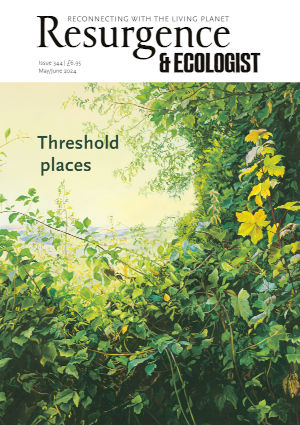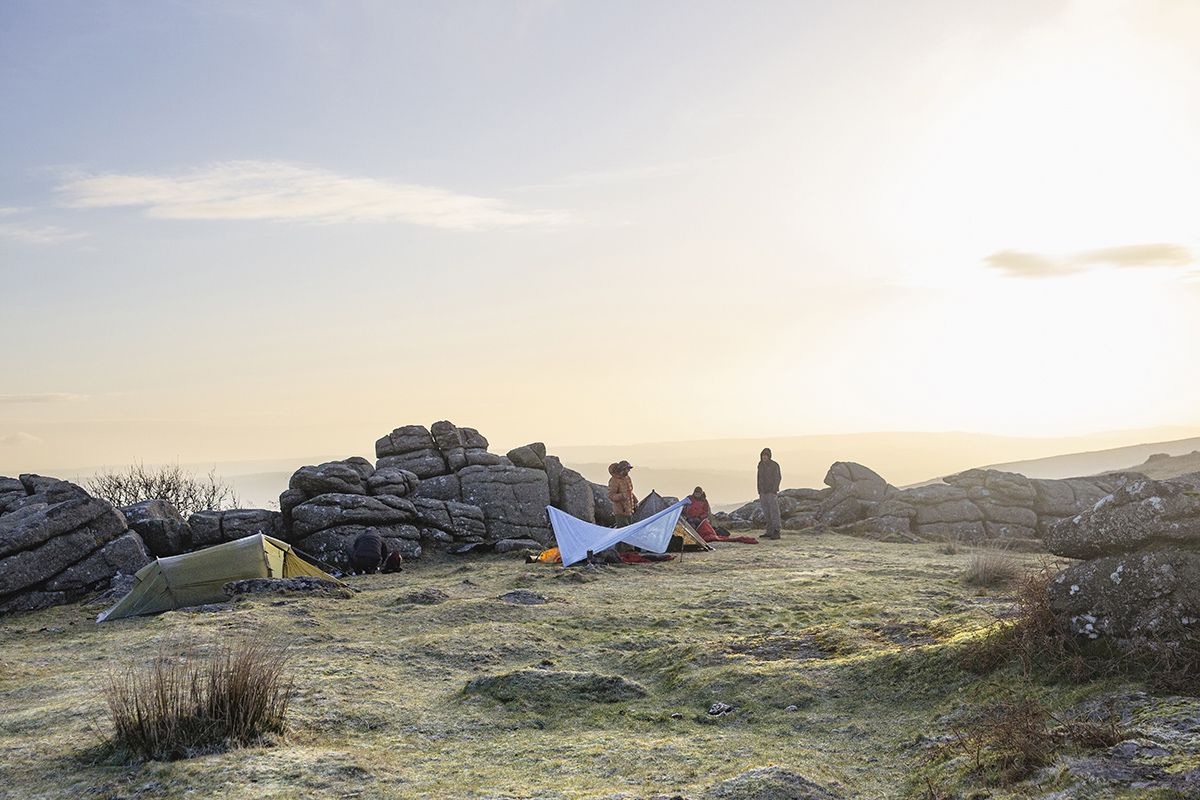On a freezing cold December day in 2022 a large group of people gathered outside Dartmoor National Park headquarters. They wanted to show their support for the National Park in a court case lodged by landowner Alexander Darwall. His aim was to remove the right to wild camp from his 4,050-acre estate near Cornwood. This would in turn affect the right to wild camp within the entire National Park.
The 1985 Dartmoor Commons Act stated that recreational activities were allowed on the moor. Ever since then, Dartmoor has been the only place in England where wild camping is legal. Thousands of people each year make the pilgrimage to sleep out under the stars, developing a close connection to Nature, leaving no trace of ever having been there, and returning home with experiences that last a lifetime.
Darwall’s argument was that the 1985 act did not specifically state that wild camping was allowed. A court case ensued in January 2023, and astonishingly he won. This sparked one of the biggest land rights protests in a generation. More than 3,000 people gathered at Stall Moor on Darwall’s estate, carrying drums and placards. Over the hill, a giant folk figure of Old Crockern appeared, built by Ruth Webb of The Lost Giants. It was followed by a plethora of musicians, dancers and children.
The campaign group The Stars Are For Everyone maintained pressure and continued to protest, wild camping in freezing conditions to raise awareness and apply pressure on Dartmoor National Park to appeal the decision. With organisations including The Dartmoor Preservation Association and The Open Spaces Society adding their voices, the National Park agreed to appeal, and fundraising began to cover legal costs. News of the campaign spread quickly and captured the hearts and minds of people up and down the country who had connections to Dartmoor or who just craved greater access to the countryside.
During the hearing, outside the High Court in London the sound of Mayday Morris drums and songs echoed down the streets. Robert Macfarlane, Amy-Jane Beer, Guy Shrubsole, Lewis Winks, Caroline Lucas and others spoke with passion about the importance of this Nature-connected activity and how losing this access to the moor was the ‘nail in the coffin’ for a more progressive, ‘open for all’ country.
On a windy day at the end of July, news arrived that the National Park had won the appeal. Musicians, Morris dancers, young and old once again gathered at the iconic Haytor to celebrate. The atmosphere was electric. The power of community activism had been demonstrated and proved victorious against all odds.
After the dust settled and almost a year to the day from the great protest at Cornwood, it was announced that the Darwalls had been successful in gaining permission to bring the case to The Supreme Court. In response, campaigners donned their walking boots and waterproofs and headed to the front gates of the Darwalls’ estate waving a big, well-worn banner that proclaimed: ‘Right to Roam’.
In the run-up to The Supreme Court case, further actions are planned, but for the time being our rights remain, so we will continue to wild camp on Dartmoor, a freedom that is now more deeply valued than ever before.







